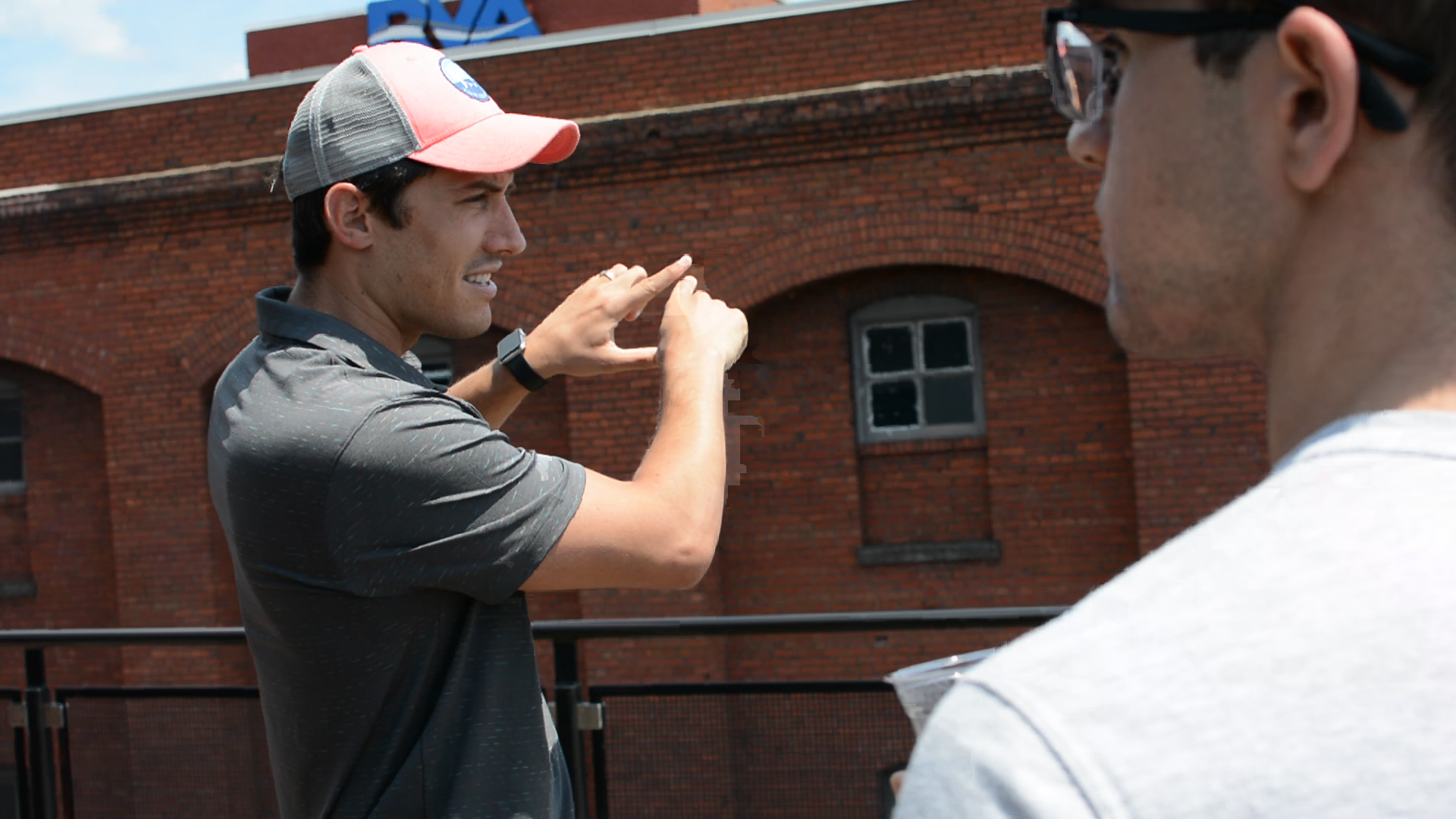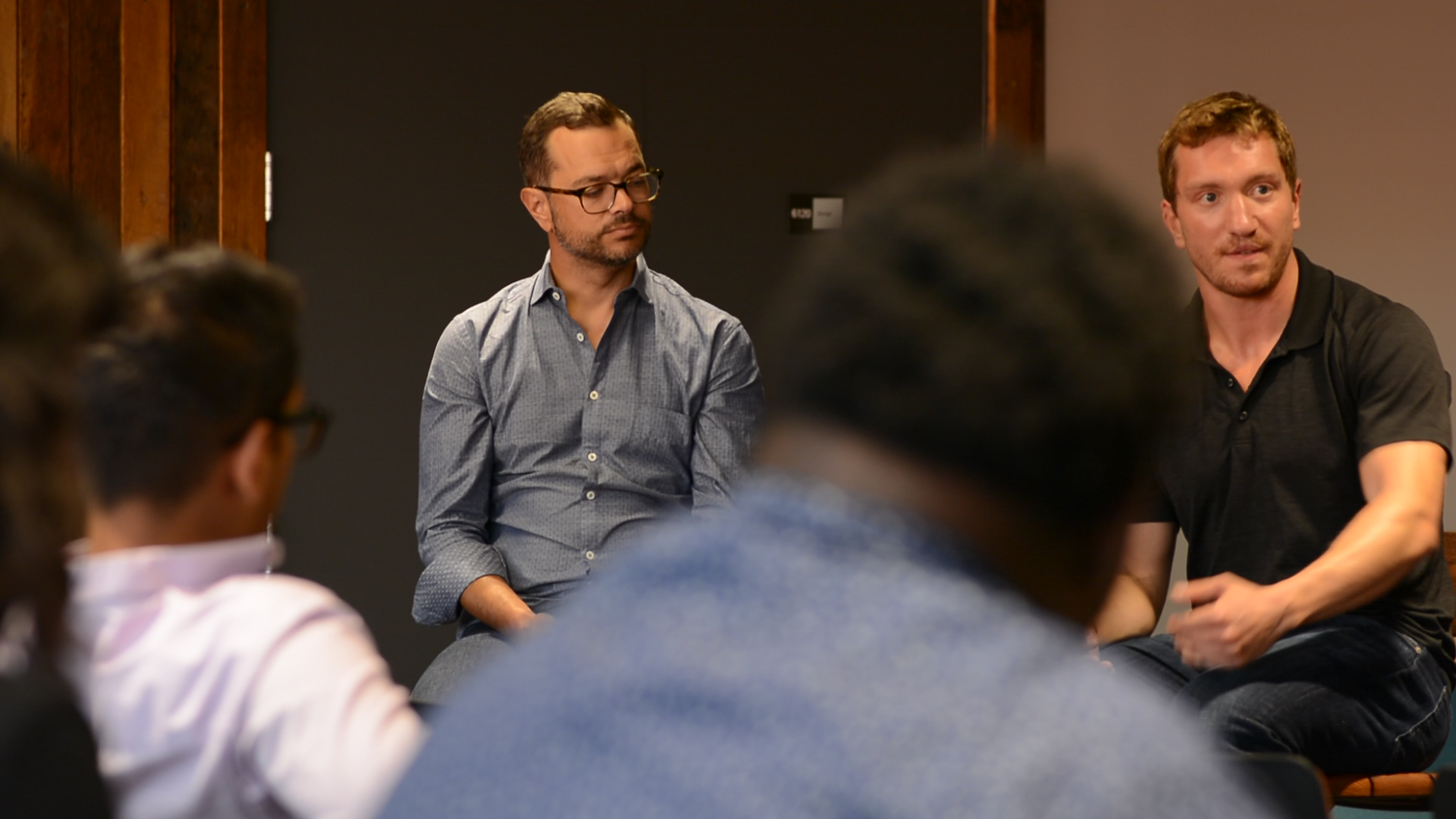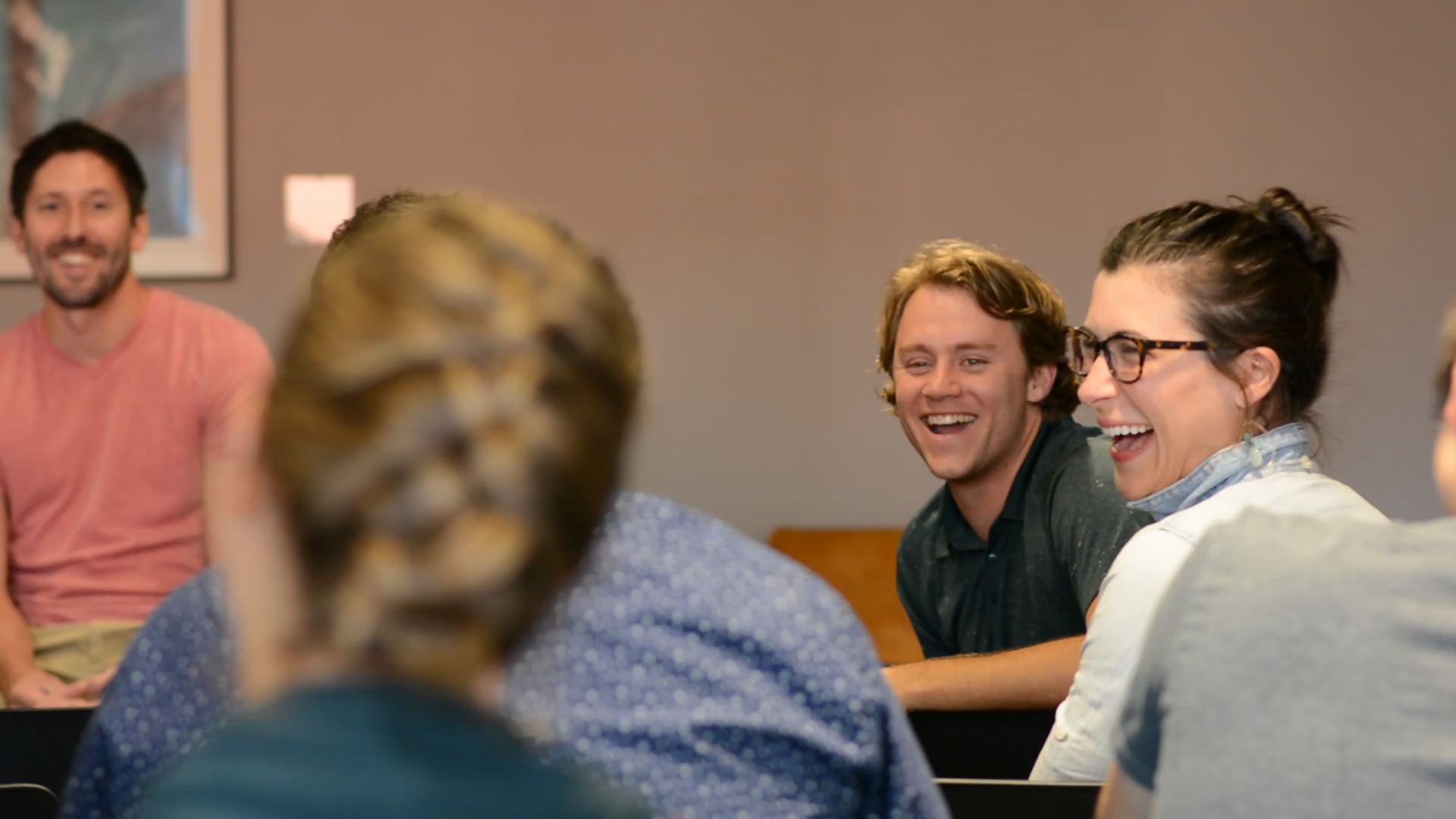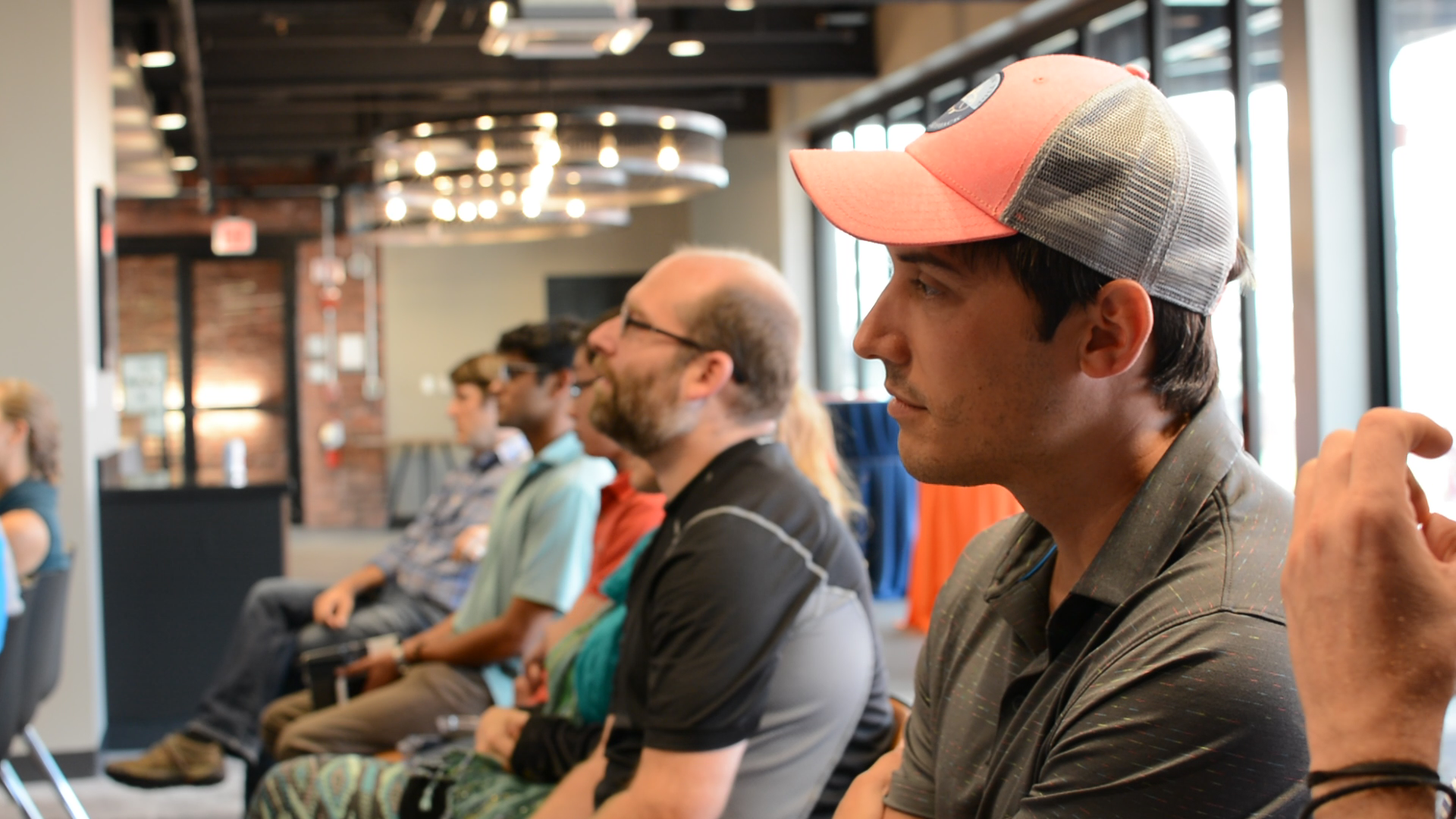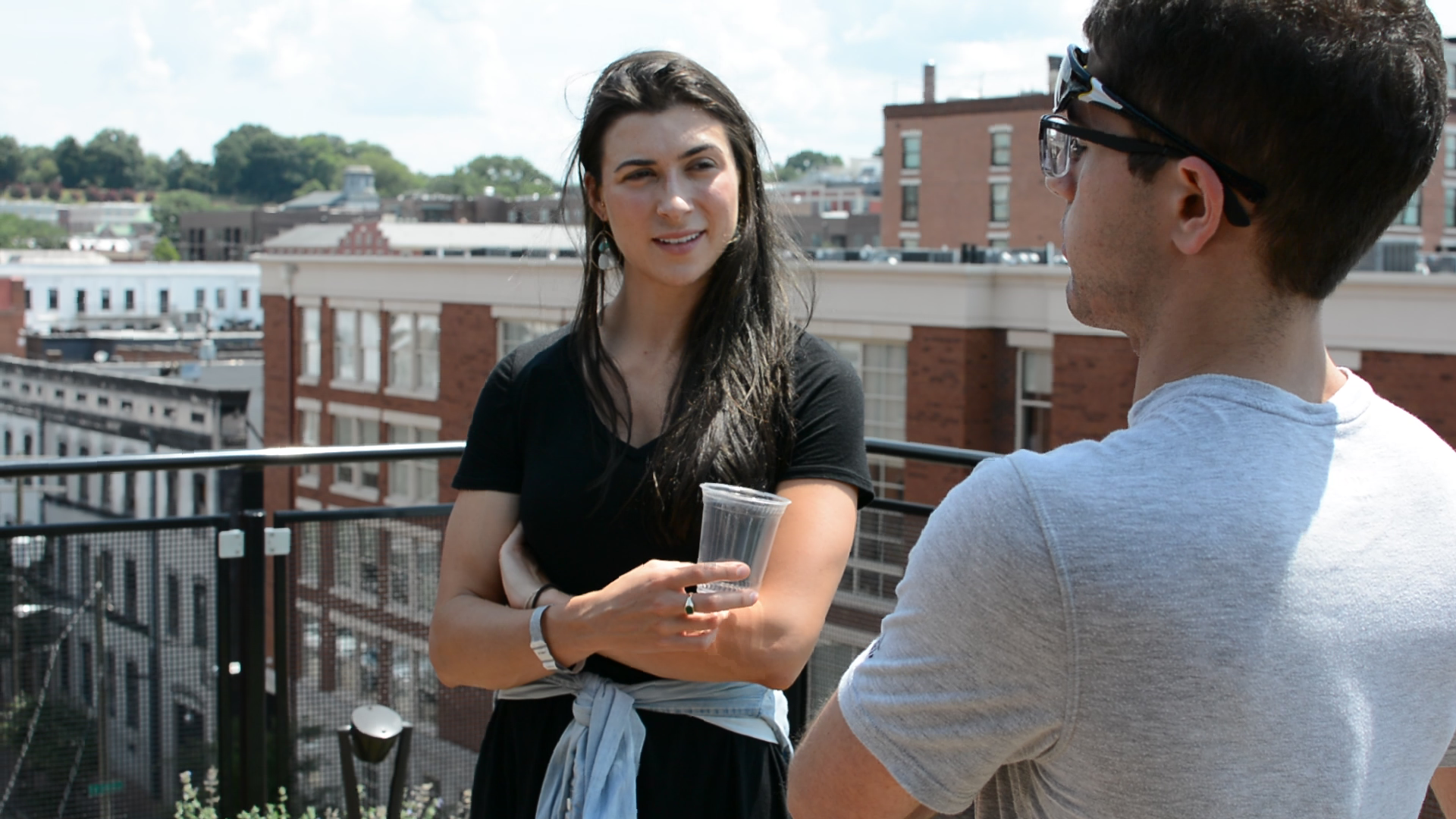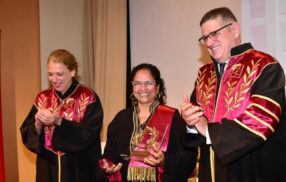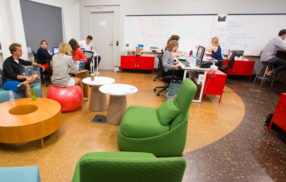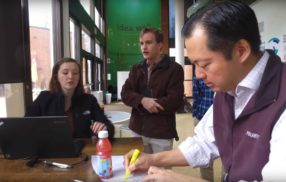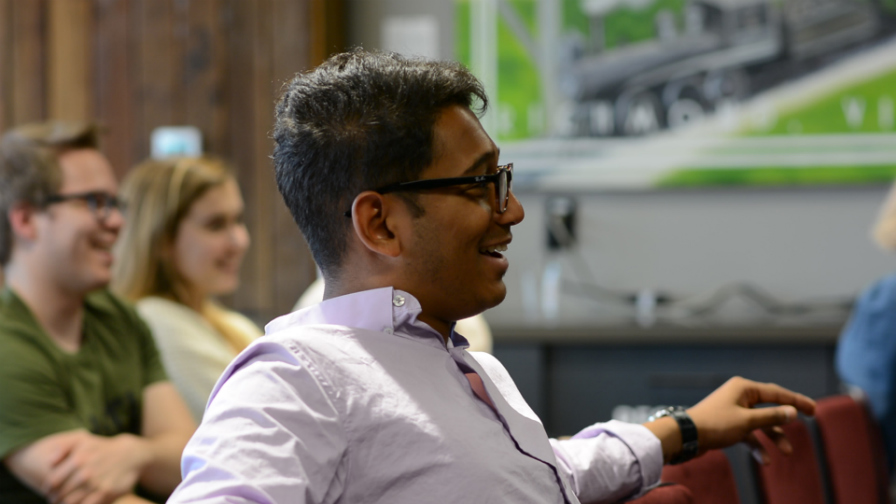
i.Lab Incubator Cohort Explores Startup Life After Summer Accelerator at 1717 Innovation Center
By Derry Wade
On the home stretch of their 10-week summer startup accelerator program, the 2018 i.Lab at UVA Incubator cohort traveled to Richmond’s new community space for entrepreneurs and community organizations, 1717 Innovation Center, built by Capital One Financial Corp. as part of its Future Edge initiative.
The W.L. Lyons Brown III i.Lab is an initiative of the Batten Institute for Entrepreneurship and Innovation at the University of Virginia Darden School of Business.
“I knew it would be a wonderful opportunity for i.Lab Incubator founders to witness the community and corporate support for entrepreneurs taking place in our commonwealth’s capital. 1717 is a potential future home for our founders and a network-building opportunity for those ventures looking for expansion beyond Charlottesville,” i.Lab Incubator Director Jason Brewster said.
Brewster organized the trip with Richard Wintsch, Executive Director of Startup Virginia and Rasheeda Creighton, Director of 1717. “Part of our focus for 1717 is connecting with universities and founders to help grow the Richmond ecosystem, and it was a pleasure to not only do that through this visit, but to also provide connections to the Capital One research lab, our nonprofit partner, Startup Virginia and our architectural and furniture partners, SMBW Architects and Knoll,” Creighton said.
Darden alumna Jen Finn (MBA ’00), head of payments and servicing for Capital One’s Small Business Bank, was another key partner making the visit possible. Finn was instrumental in the effort to launch 1717 and met with the i.Lab founders during their trip to the space.
“We know that density and diversity are critical to our region’s entrepreneurial ecosystem, and that there is such a wealth of talent and resources in central Virginia,” Finn said. “I’m excited to see how the 1717 Innovation Center is enabling collaboration across the I-64 corridor, and supporting that talent in achieving their full potential.”
The day at 1717 included three panel presentations, beginning with Workplace of the Future, an overview of the design plan given by 1717’s architecture firm, SMBW, and interior design firm, Knoll, which were both instrumental in the i.Lab’s redesign in 2013. The design called for the conversion of a former tobacco warehouse into open co-working space for up to 50 ventures. The six-story building in Richmond’s Shockoe Bottom neighborhood also provides office space along with mentoring, leadership programs, and community events and conferences.
“It was inspiring to visit 1717 and learn more about the entrepreneurial landscape of Richmond,” said Rebecca Perea-Kane, founder of nature-inspired jewelry company Thicket. “I was especially intrigued by learning in the tour the ways that the 1717 renovation integrates the history of the building itself, and Richmond as a city, with designing a space that facilitates collaborative work and entrepreneurship.”
During the second panel, Introduction to User-Centered Research, Capital One researchers Mike Benjamin and David Lessard described for the group their methods for qualitative and quantitative analysis, including “empathy interviews,” which help shape their customer attainment and relationship management decisions.
“What impressed me about Capital One’s commitment to being a data-driven company is that they step out of the spreadsheets and into interactions with their customers,” said Van Hatchell (MBA ’18), founder of RecruitRef, an online platform connecting students and coaches in the college athletics recruiting process. “They design their products around data that they gather through human interactions like customer interviews and iterating with simple prototypes.”
The final presentation, Startup Founders, included former i.Lab founders Alan Wei and Brig Leland from the 2016 and 2017 cohorts. The founders of Totem and Pivot Pass are now members of the high-growth incubator Startup Virginia, which is based out of 1717.
Evan Nesterak, founder of MAP Sports, a venture helping sports organizations measure and improve the psychological mindsets essential to high performance, enjoyed the juxtaposition of hearing from Capital One employees and founders of new ventures. “Getting to see the corporate perspective and then also the founders’ perspective on problem solving and custom solutions created some real ‘ahas’ for me that are making a difference in how I am thinking about my own venture,” he said.
The visit allowed Melissa Stefaniak (Class of 2019) to think about what comes for her and her startup after the i.Lab. “1717 is an extension of what we’re doing at the i.Lab,” said the founder of Single Baked Sweets, a bake-at-home dessert company. “It’s a great example of what larger companies, like Capital One, can do to support local entrepreneurs.”
The University of Virginia Darden School of Business prepares responsible global leaders through unparalleled transformational learning experiences. Darden’s graduate degree programs (MBA, MSBA and Ph.D.) and Executive Education & Lifelong Learning programs offered by the Darden School Foundation set the stage for a lifetime of career advancement and impact. Darden’s top-ranked faculty, renowned for teaching excellence, inspires and shapes modern business leadership worldwide through research, thought leadership and business publishing. Darden has Grounds in Charlottesville, Virginia, and the Washington, D.C., area and a global community that includes 18,000 alumni in 90 countries. Darden was established in 1955 at the University of Virginia, a top public university founded by Thomas Jefferson in 1819 in Charlottesville, Virginia.
Press Contact
Molly Mitchell
Associate Director of Content Marketing and Social Media
Darden School of Business
University of Virginia
MitchellM@darden.virginia.edu


